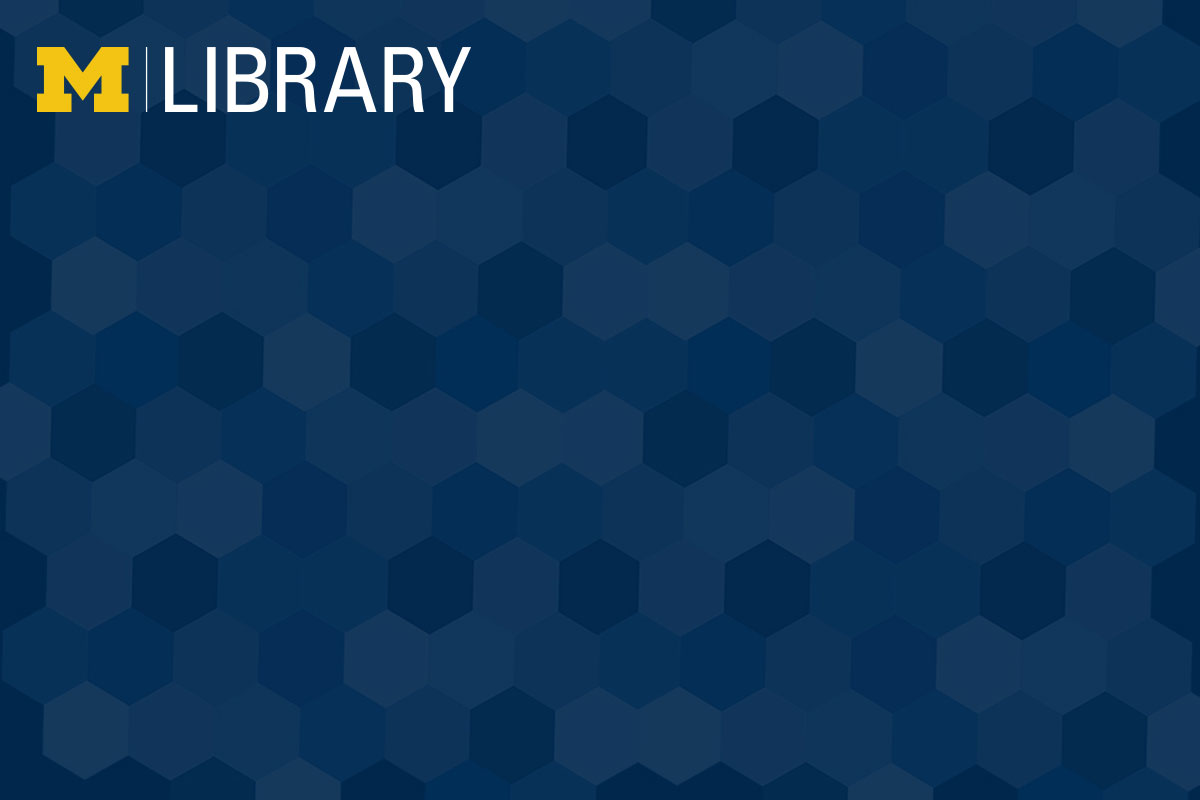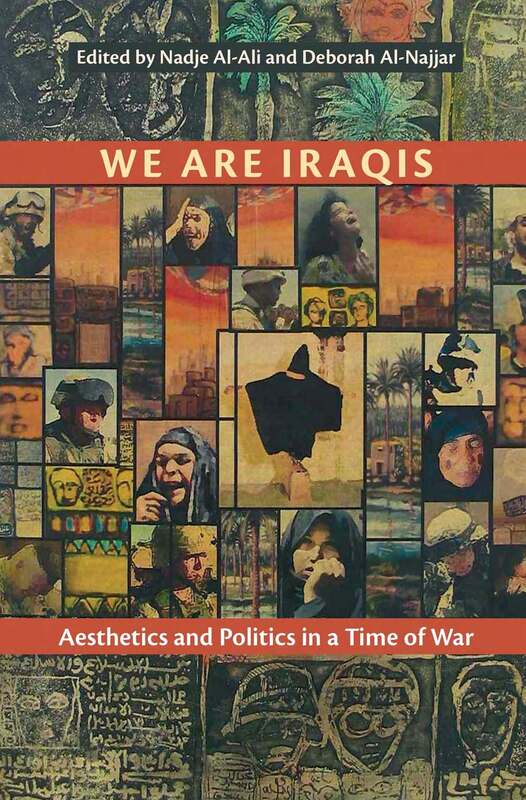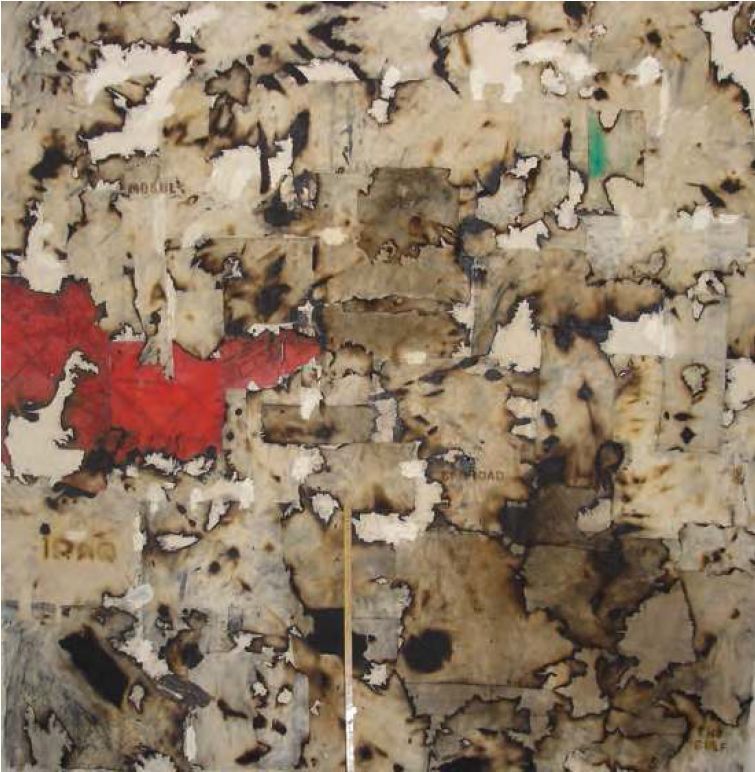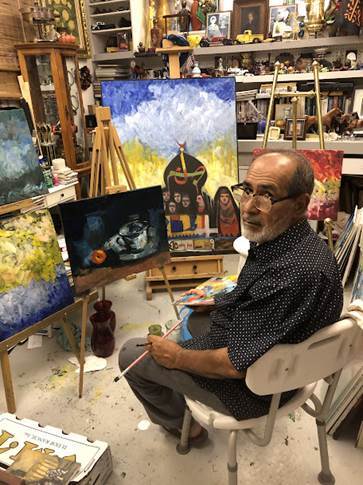Art as Resistance
The title of the anthology, We Are Iraqis: Aesthetics and Politics in a Time of War, (2013) is situated atop the art piece Iraqi Landscape (2005) in etching, collage, and hand-coloring by US-based Iraqi activist-artist-art historian Dr. Hashim Al-Tawil.
This painting, an ensemble of small images, impresses a theme of despair and suffering via motifs of the American military. Within the volume, written and visual work by Iraqi artists, writers, poets, filmmakers, photographers, and activists explore how Iraqis retain, subvert, and produce art and activism as ways of coping with despair and resisting chaos and destruction.
Among the visual works featured is Hanaa Malallah’s Iraq Map. Another example of her “Ruins Technique,” the piece brings together torn and singed fragments in topographic relief. The jagged contours evoke layers of debris. Though Malallah’s technique is destructive, she says that she makes use of this process to bring forward the reality of war as a visceral experience.
The first anthology of its kind, We Are Iraqis brings into focus the multitude of ethnicities, religions, and experiences that are all part of Iraq.
Almost ten years later, in the summer of 2022, with formal sanctions and the U.S. occupation in theory behind them, three Iraqi artists - Sajjad Abbas, Raed Mutar, and Layth Kareem - were among those selected to display their work at the Berlin Biennale, which focused on decolonial engagement. To their horror, a French artist’s immersive installation of graphic photographs from the Abu Ghraib prison was exhibitionally intertwined with their work - without the artists’ knowledge or consent.
Outraged, the Iraqi artists and their curatorial representative Rijin Sahakian together wrote a statement to the curators. They explained how they were denied the ability to shape their own stories and forced into a French artist’s manipulation of their perspective - all in the name of decolonization. This is one of numerous examples of how Iraqis continue to be subjected to the forces of a sort of ghost occupation.
The Berlin Biennale’s curators refused to remove the French work citing issues of censorship and erasure, and the Iraqi artists withdrew from the show and issued a second letter in response:
“We have not been moved to accept the instrumentalization of our work and identities as Iraqi … we have the right to contest the curatorial actions of the Biennale without us being described as a fight … asking for the responsible handling of criminal evidence of war crimes is not a form of erasure, it is the assertion of a collective Iraqi voice against the perpetuation of the occupations violence. The curators make this claim by listing their decolonial credentials while at the same time lecturing us on how to understand our own history. The curators artistic practice and personal family history taking precedence over the artistic practice, lived experience, and family histories of Iraqis, speaks to the asymmetric power this Bienal is intent on producing in its discourse and in its curatorial negligence.”
Fifteen artists initially cosigned the statement, published in the 29 July 2022 issue of Art Forum. Eventually over four hundred cosigners added their support.
Meanwhile, in Michigan, Dr. Mohammed Karim paints in his home studio in Metro Detroit. Here, he sits surrounded by old and new paintings, including his contribution to the Iraqi American Artists Guild festival and some current works in progress.
It has been difficult for Dr. Karim to find work that appreciates his training in conservation and impressionism, but he continues to create art. He plans to visit his hometown of Najaf, Iraq this year and will hopefully return to his home in the United States with his remaining art pieces and his original copy of Iraq Contemporary Art.

Resilience in Exile

About the Exhibit



